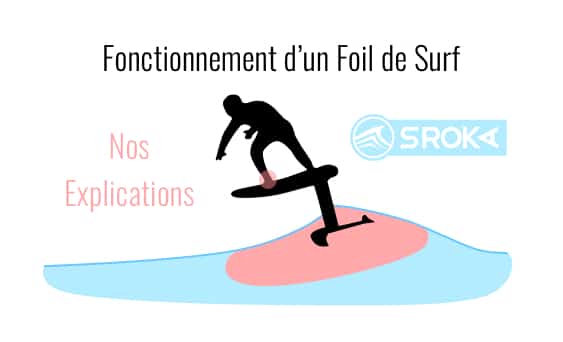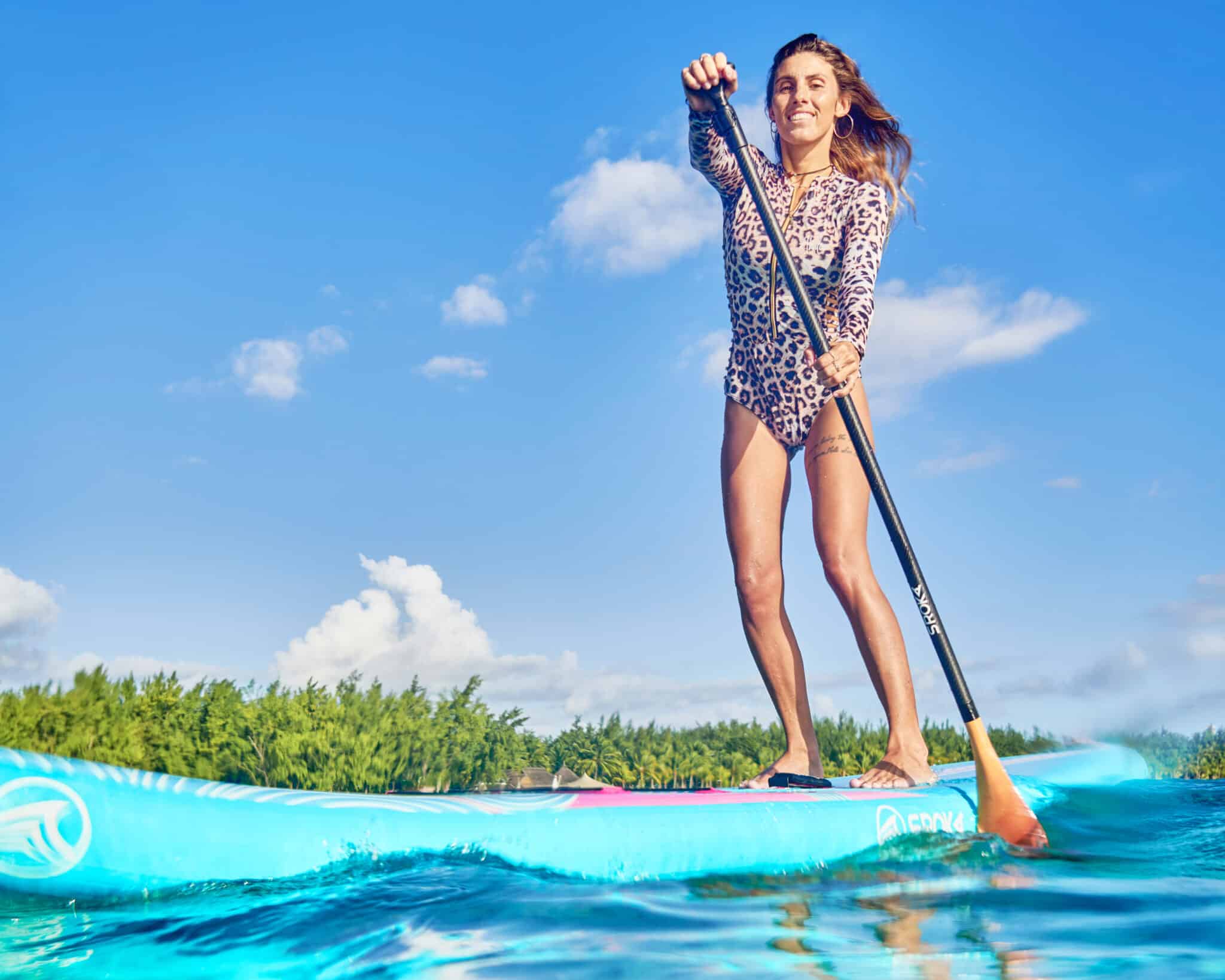Louis-Arnaud surf-foil in Mauritius, equipped with the Fast Flyer 4’6 board and the High Aspect 1190 Lift S-foil Summary Composition of a surf foil Principles …
Using your paddle board in the event of flooding: Tips and precautions
During a flood with a heavy crane, it is impossible to use your car to get supplies or go to your neighbours if necessary. Ideally, you would need a boat, but unless you live by the sea, in the countryside few people own a boat. On the other hand, inflatable paddle boarding is a sport that is well democratized, you can consider using your paddle to move on the water. In this article, we are going to give you all the tips and precautions you need to use your paddle in case of flooding? Is this really a good idea?
Understanding the role of paddle boarding in the event of flooding
The inflatable paddle board is a watercraft that can be used to move around during floods. However, to avoid putting one’s life at risk, it is best for floods to occur without power. In this way, the risk of being swept away by the current and the associated hazards is reduced
Advantages
The main advantage of a paddle board is the set up. In a very short time, less than 5 minutes, your paddle is ready to be launched. The second advantage is the lightness and manoeuvrability of a paddle board. It can squeeze in anywhere without any problems and thus avoids all obstacles in the water.
It therefore makes it easy to connect areas that are inaccessible on foot with just a few strokes of the paddle. On the other hand, you should ideally have a paddle that is as stable as possible (i.e. with a little width) to be stable and avoid falling into the water.
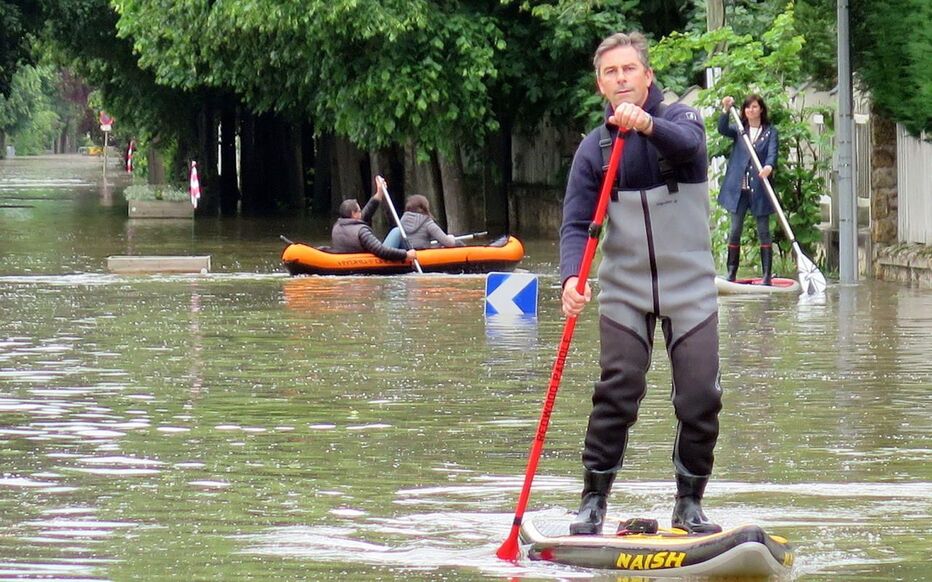
Pre-Flood Preparedness
If you reside in an area with a high risk of flooding, it’s a good idea to anticipate potential problems by moving as many items as possible upstairs in your home. Also, stay informed and consider contacting your town hall for technical information if needed.
Let’s say one day you want to buy a paddle board to make it easier to get around. In this case, we recommend that you choose a high-quality paddle board, with a double skin on the deck and hull. What for? Because unlike lakes or the sea, you’ll have to navigate over roads, embankments, sidewalks, and other obstacles. Usually, during floods, the water is not transparent, which means you can’t see what’s underneath your paddle. Having a sturdy and stable paddle board is essential to avoid damage in the event of contact with an obstacle underwater
A reinforced paddle board is more than three times stronger than a low-cost paddle board. To better understand, let’s explore the technical details:
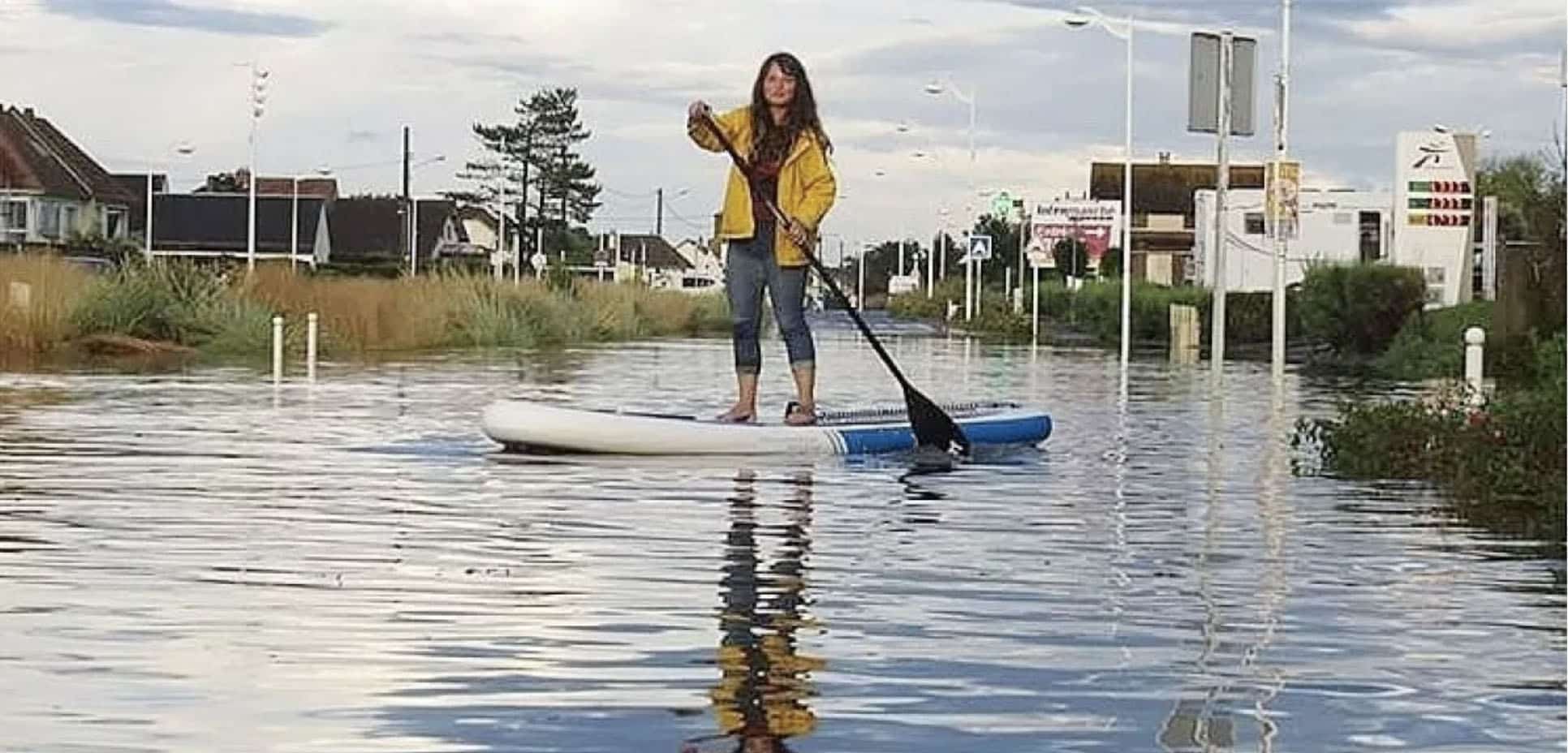
- PVC Materials & Layers: A paddle board is made by hand, and its strength depends on the number of layers of PVC used. A reinforced paddle has a double skin and three layers on the rails. This construction makes it resistant to abrasion, shocks and possible explosions when in contact with a blunt object.
- Board Stability:
- Board width : A wide board, measuring 31 inches or more, is considered wide and stable.
- Plank Shape : If the back of the board is wide enough, it will provide better stability. On the other hand, if the rear is rather thin, the board will glide better but will be less stable.
- Construction : Stiffness plays a critical role in stability. A reinforced paddle board is more stable because it is stiffer.
So if you’re looking for a stable paddle. Follow the link below. This top-of-the-range range are reinforced paddles that will be very stable.
In the context of flooding, a solid aluminum paddle will do the trick, no need to own an ultra-light paddle.
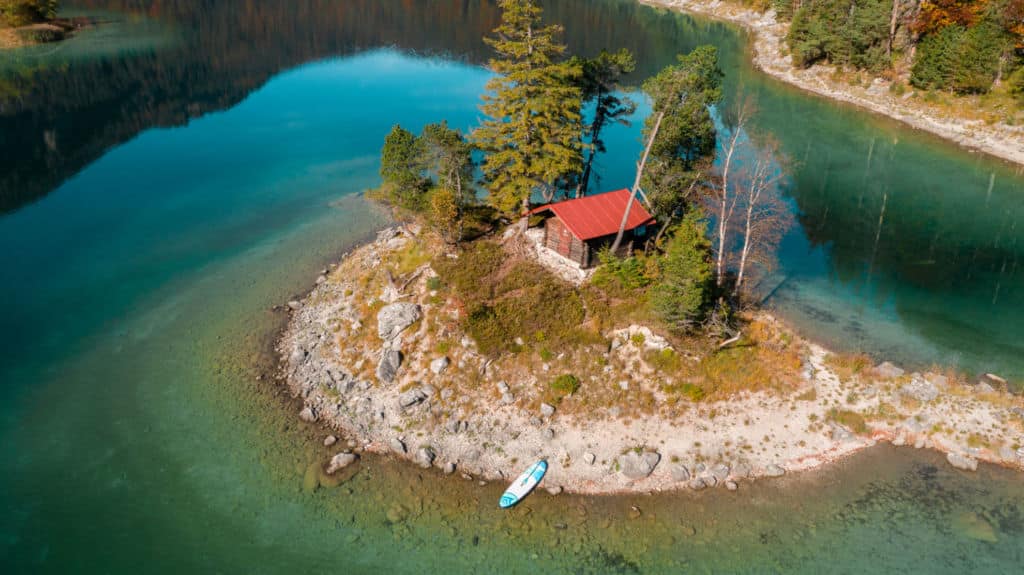
Using the paddle board during the flood
If you’re planning to paddle board during flooding, here are some safety tips to follow:

- Choose your route wisely : Prioritize your safety. Before leaving, map out your route and analyze any problems you may encounter, such as strong currents or dangerous areas.
- Equip yourself correctly:
Wear a life jacket and a wetsuit with a spare rope attached to the front of the paddle. Make sure the rope is long enough that you can hang it on a pole or throw it a few feet away if needed.
- Navigation technique:
- Don’t look for speed, but rather efficiency to save energy.
- Opt for a paddle board of about 10’6″ x 32″ which will be both stable and relatively short, thus facilitating manoeuvres. It’s easier to turn with a medium-sized paddle compared to a 12-foot or larger model.
- Communication and anticipation:
- Inform your loved ones of your journey and set up a communication process (call time, or call as soon as you arrive….) so as not to be unable to communicate in case of danger or stress. Of course, remember to have a waterproof phone or put it in a waterproof bag.
- Anticipate the fact that you may need to help others who are struggling. A stable paddle board is therefore essential in this context.
Remember, safety should always be your priority when paddleboarding during floods
In short
Using a paddle board during floods can be a practical solution to get around safely. However, it is essential to follow safety rules, plan your route carefully, equip yourself appropriately and remain aware of the associated risks. If you live near a river with current, this option can be risky. Always prioritize your safety and that of your loved ones in such situations.
If you still have questions about this, or for any other request, please do not hesitate to contact us !
Article you may be interested in
Did you know that paddle boarding is a great way to strengthen your body? Not only does this activity allow you to escape on the …
Are you looking for an inflatable paddle board for the summer to sail at sea or in lakes? The inflatable paddle board really has a …
What is Wing Foil? Wing Foil is the latest in board sports. This consists of manipulating a wing held with both hands (“wing”) with a …

